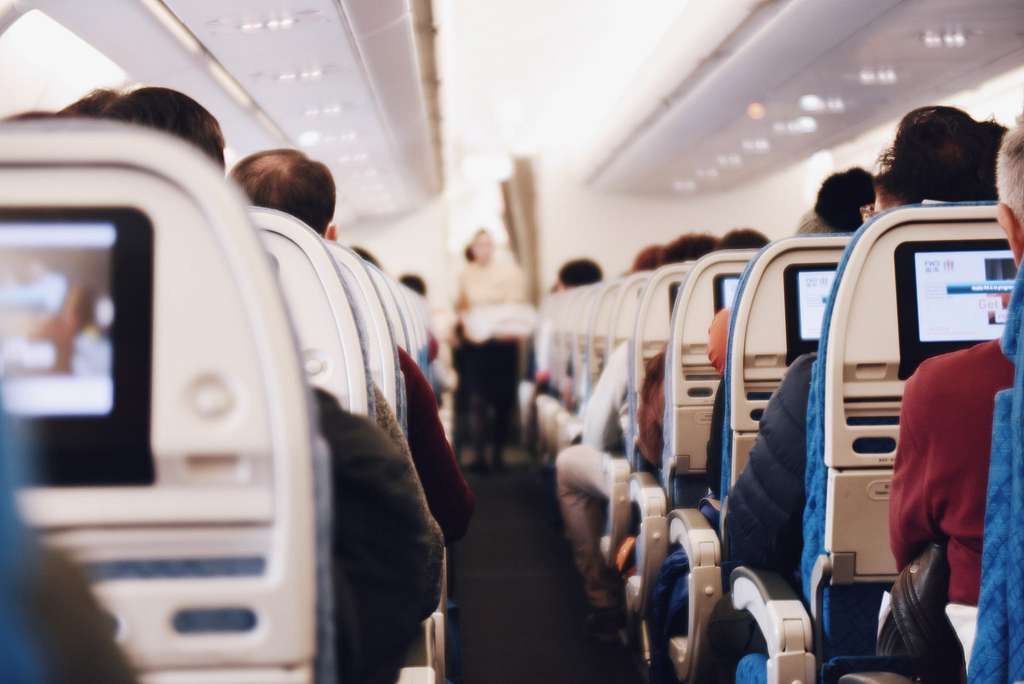International students await lifting of travel bans to reunite with family

Malu Alvarenga, a first-year international student from São Paulo, Brazil, got sick with COVID-19 at the beginning of the semester. With her parents on a different continent and travel bans still in place, the looming thought of them not being able to visit haunted her.
“I wanted to have my parents around in case my condition worsened,” said Alvarenga. “Everything turned out all right, but I know my parents were worried and that they would have come if it weren’t for the travel bans.”
The Proclamation on Advancing the Safe Resumption of Global Travel During the COVID-19 Pandemic, issued by The White House on Oct. 25, states that as of Nov. 8, travel bans will be lifted for vaccinated tourists entering the U.S.
With more than 5,000 international students at USF, the lifting of travel bans will open the possibility for family members to visit, especially for students who cannot easily return to their home countries.
Travel bans were enacted in early 2020 under the Trump administration. China, Iran, Europe Schengen Area, the U.K., Ireland, Brazil, South Africa and India were included on the Centers for Disease Control and Prevention’s (CDC) travel ban list. The CDC’s list has been updated several times over the past two years with both the addition and removal of countries.
Some international students, such as Alvarenga, are hopeful their family will be able to visit them soon as travel bans are lifted. However, there are still various factors such as visa acquisition and the CDC requirements that come into play with international travel.
Consulates have had their doors closed for almost two years, and many people are in line to obtain their visas. Alvarenga’s parents are in the process of renewing their tourist visas so they can visit her.
“Even now that the borders will open, my parents still can’t come because their visas have expired, and with the recent opening of the consulates, there has been no availability for an appointment,” said Alvarenga.
While the bans were in place, several international students also faced challenges such as moving to a new country independently, as their family members were not allowed to enter the U.S.
“I had to move on my own, and I wish my parents were here with me during such a life-changing moment,” said Alvarenga. “It was even harder knowing that my parents would not be able to come and visit me.”
Vittoria Patti, a second-year student from Rome, Italy, couldn’t have her parents help her move in either. She said that some of her friends’ families went to South America to quarantine in order to enter the U.S., but that was not a viable option for her family.
“It was a stressful experience having to move across the world on my own,” she said. “I saw other students with their families and wished mine was able to come.”
The CDC states that proof of vaccination is required upon entry into the U.S., but even with an approved visa, accessing approved vaccines to travel is not as easy in some countries, such as Russia, where the Sputnik vaccine is more widely available. At the moment, only AstraZeneca, Johnson and Johnson, Moderna, Pfizer, Sinopharm and Sinovac are being accepted to enter the U.S.
Whether or not Patti’s family will be able to come is still uncertain, she said. Although they are vaccinated, she said the vaccine wasn’t one of the approved ones to enter the country.
“My parents are still not sure if they will be able to come yet because even though the travel bans are being lifted, the vaccine they took has not been approved by the FDA yet,” said Patti.
“As of right now, they still can’t come.”
The effects of the travel bans have also been reflected in education programs at USF such as the international certificate program for the School of Hospitality, according to the Dean of the School of Hospitality Cihan Cobanoglu.
While students qualified for the National Interest Exception, an exception to the current travel bans, Cobanoglu said many decided not to come to the U.S. due to the barriers facing international travel.
“From our [School of Hospitality at the St. Pete Campus], we have an international certificate program, which we usually host about hundreds of students, but as of right now, in 2020 and 2021, we have zero new international students,” said Cobanoglu.
With the removal of travel bans, Cobanoglu believes the number of international students will slowly return to average rates for the international certificate program.
“In January, we [the international certificate program] are expecting two new [international] students, one from Turkey and one from Guana,” said Cobanoglu.
Although there are some uncertainties remaining, Alvarenga said she hopes with the lifting of the travel bans, seeing her family will become easier.
“I just hope everything turns out all right, this situation is very complicated,” said Alvarenga.
“There is always this uncertainty when it comes to the U.S. borders, they open and close abruptly.”








